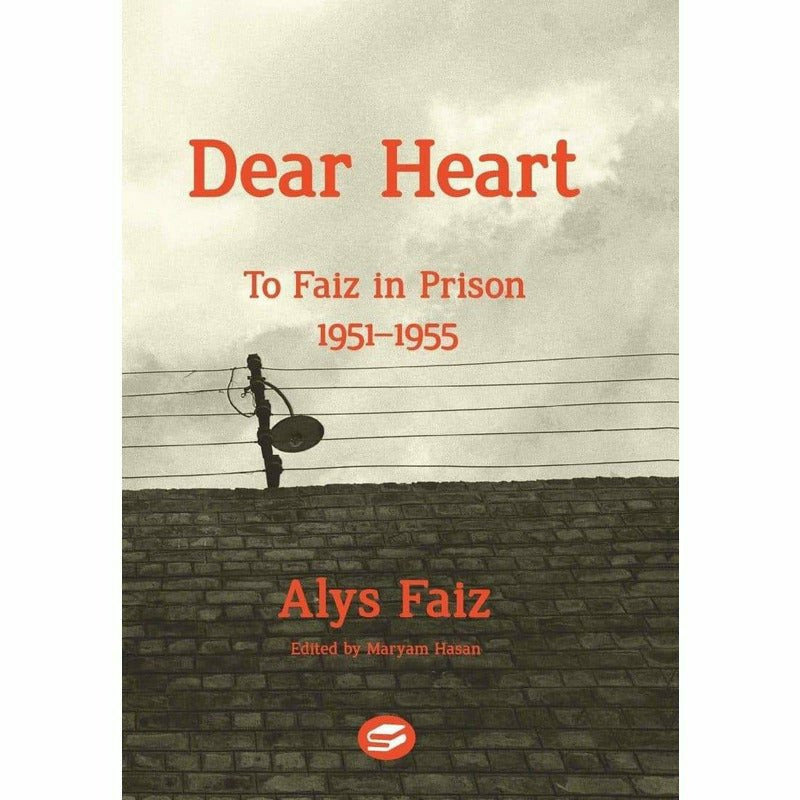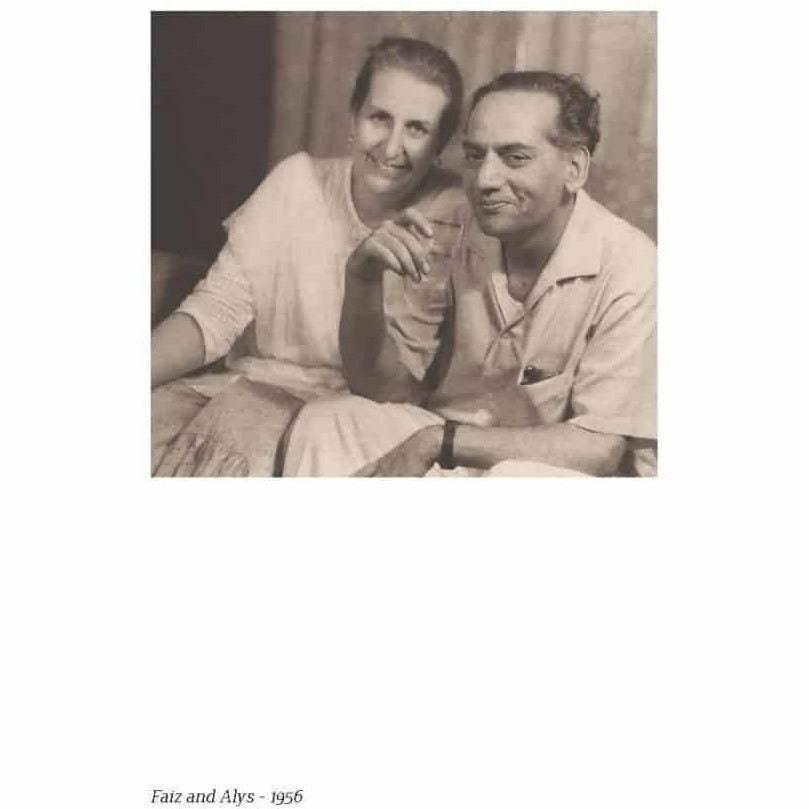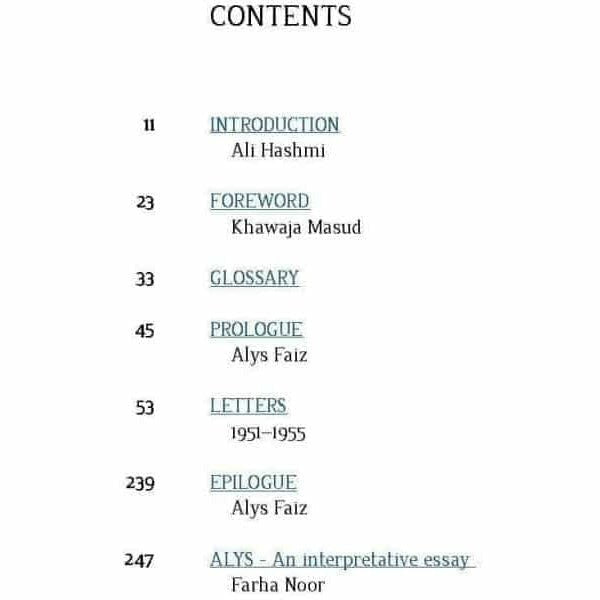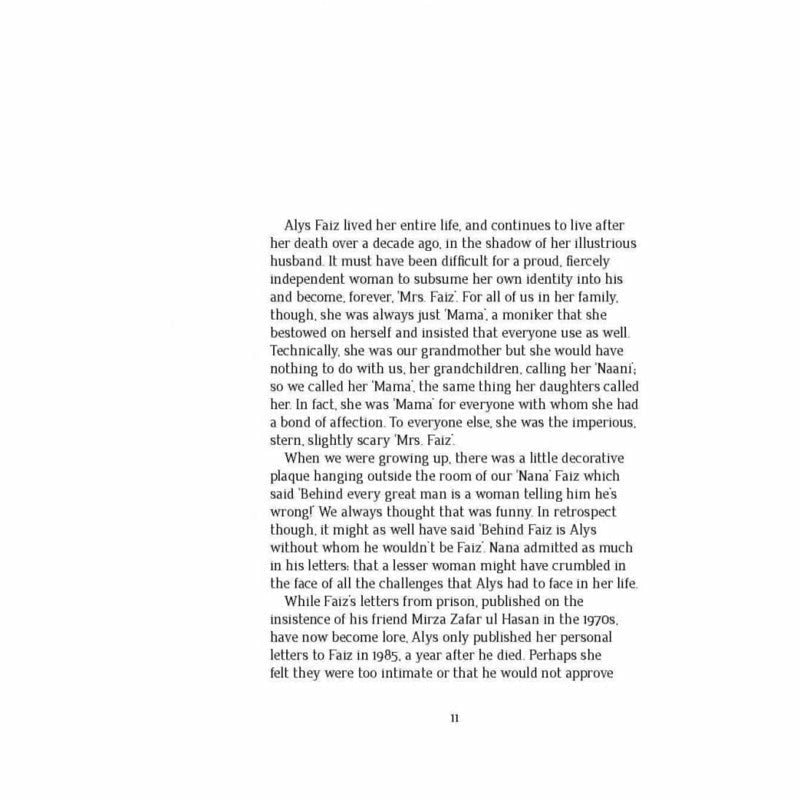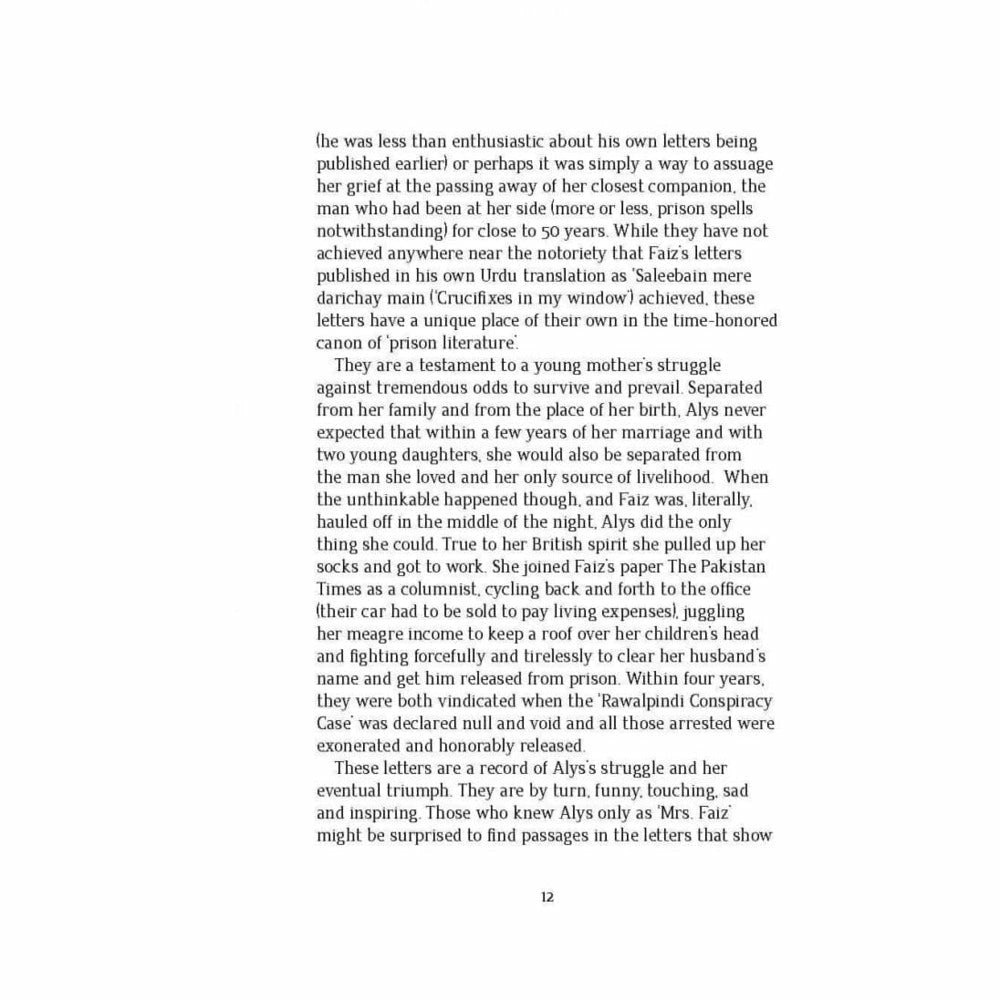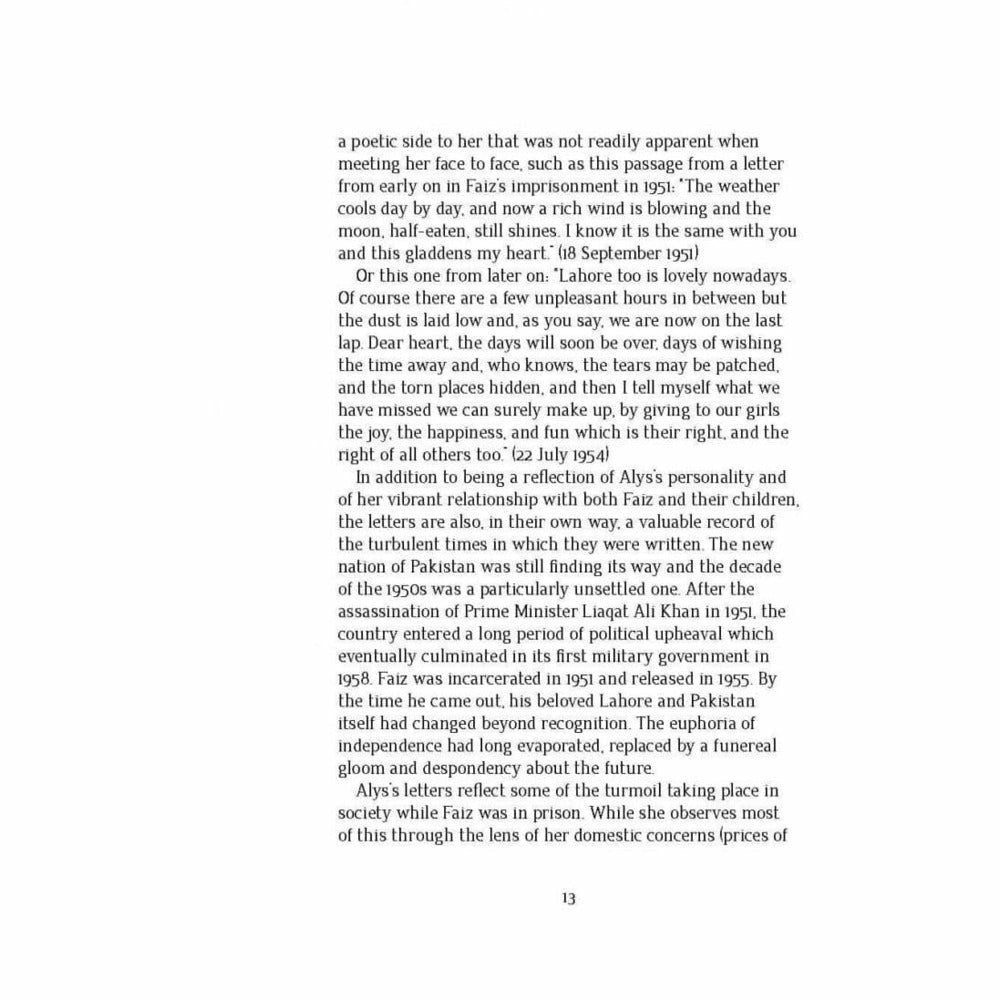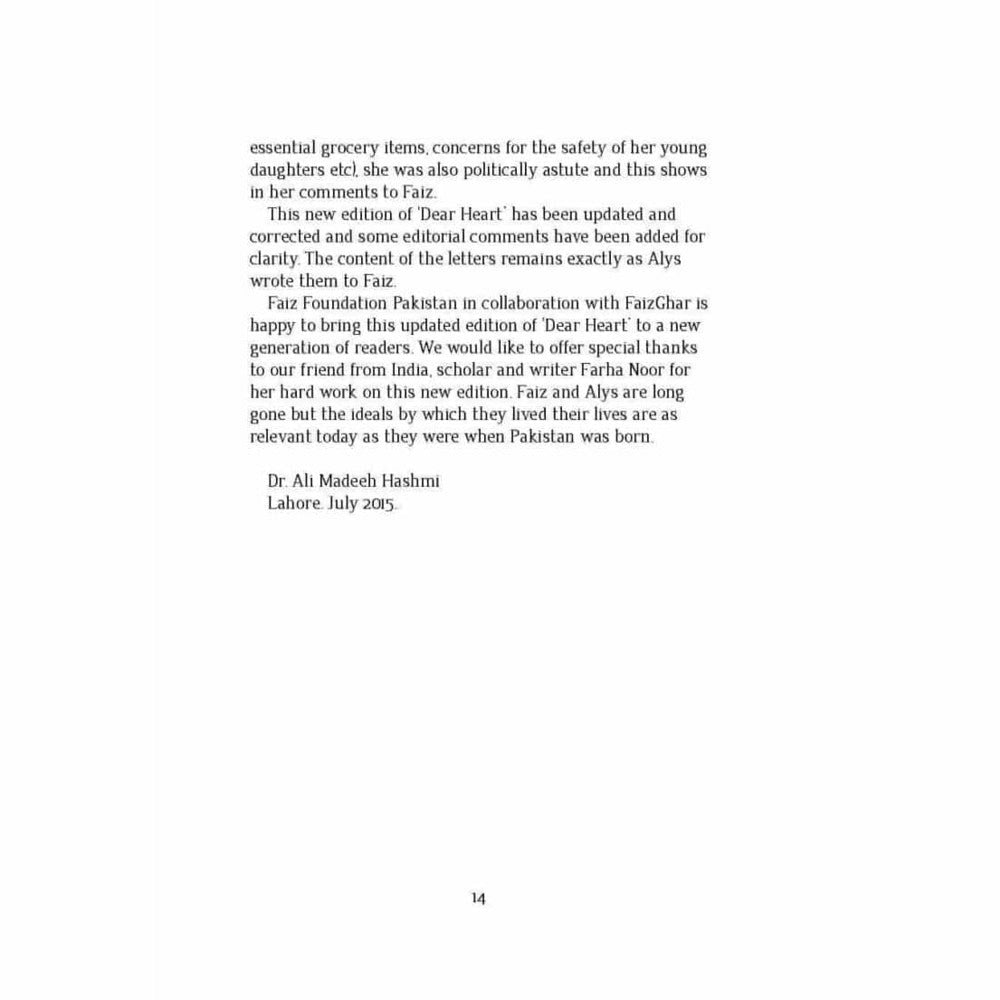Dear Heart: To Faiz In Prison 1951-1955
Dear Heart: To Faiz In Prison 1951-1955
Couldn't load pickup availability
Alys Faiz lived her entire life, and continues to live after her death over a decade ago, in the shadow of her illustrious husband. It must have been difficult for a proud, fiercely independent woman to subsume her own identity into his and become, forever, “Mrs. Faiz”. For all of us, her family, though, she was always just “Mama”, a moniker that she bestowed on herself and insisted that everyone use as well. Technically, she was our grandmother but she would have nothing to do with us, her grandchildren, calling her ‘Naani’; so we called her ‘Mama’, the same thing her daughters called her. In fact, she was ‘Mama’ for everyone with whom she had a bond of affection. To everyone else, she was the imperious, stern, slightly scary ‘Mrs. Faiz’.
When we were growing up, there was a little decorative plaque hanging outside the room of our ‘Nana’ Faiz which said “Behind every great man is a woman telling him he’s wrong!’. We always thought that was funny. In retrospect though, it might as well have said ‘Behind Faiz is Alys without whom he wouldn’t be Faiz’. Nana admitted as much in his letters: that a lesser woman might have crumbled in the face of all the challenges that Alys had to face in her life.
While Faiz’s letters from prison, published on the insistence of his friend Mirza Zafar ul Hasan in the 1970s have now become lore, Alys only published her personal letters to Faiz in 1985, a year after he died. Perhaps she felt they were too intimate or that he would not approve (he was less than enthusiastic about his own letters being published earlier) or perhaps it was simply a way to assuage her grief at the passing away of her closest companion, the man who had been at her side (more or less, prison spells notwithstand- ing) for close to 50 years. While they have not achieved anywhere near the notoriety that Faiz’s letter’s published in his own Urdu translation as ‘Saleebain mere darichay main (‘Crucifixes in my window’) achieved, these letter have a unique place of their own in the time honored canon of ‘prison literature’.
They are a testament to a young mother’s struggle against tremendous odds to survive and prevail. Separated from her family and from the place of her birth, Alys never expected that within a few years of her marriage and with two young daughters, she would also be separated from the man she loved and her only source of livelihood. When the unthinkable happened though, and Faiz was, literally, hauled off in the middle of the night, Alys did the only thing she could. True to her British spirit she pulled up her socks and got to work. She joined Faiz’s paper The Pakistan Times as a columnist, cycling back and forth to the office (their car had to be sold to pay living expenses), juggling her meagre income to keep a roof over her children’s’ head and fighting forcefully and tirelessly to clear her husband’s name and
get him released from prison. Within four years, they were both vindicated when the ‘Rawalpindi Conspiracy Case’ was declared null and void and all those arrested were exonerat- ed and honorably released.
These letters are a record of Alys’s struggle and her eventual triumph. They are by turn, funny, touching, sad and inspiring. Those who knew Alys only as ‘Mrs. Faiz’ might be surprised to find passages in the letters that show a poetic side to her that was not readily apparent when meeting her face to face such as this passage from a letter from early on in Faiz’s imprisonment in 1951: “The weather cools day by day, and now a rich wind is blowing and the moon, half-eaten, still shines. I know it is the same with you and this gladdens my heart. (18 September 1951)”
Or this one from later on: “Lahore too is lovely nowadays. Of course there are a few unpleasant hours in between but the dust is laid low and, as you say, we are now on the last lap. Dear heart, the days will soon be over, days of wishing the time away, and who knows the tears may be patched, and the torn places hidden, and then I tell myself what we have missed we can surely make up, by giving to our girls the joy, the happiness, and fun which is their right, and the right of all others too. (22 July 1954)”.
In addition to being a reflection of Alys’s personality and of her vibrant relationship with both Faiz and their children, the letters are also, in their own way, a valuable record of the turbulent times in which they were written. The new nation of Pakistan was still finding its way and the decade of the 1950s was a particularly unsettled one. After the assassination of Prime Minister Liaqat Ali Khan in 1951, the country entered a long period of political upheaval which eventually culminated in its first military government in 1958. Faiz was incarcerated in 1951 and released in 1955. By the time he came out, his beloved Lahore and Pakistan itself had changed beyond recognition. The euphoria of independence had long evaporated replaced by a funereal gloom and despondency about the future.
Alys’s letters reflect some of the turmoil taking place in society while Faiz was in prison. While she observes most of this thru the lens of her domestic concerns (prices of essential grocery items, concerns for the safety of her young daughters etc), she was also politically astute and this shows in her comments to Faiz.
This new edition of ‘Dear Heart’ has been updated and corrected and some editorial comments have been added for clarity. The content of the letters remains exactly as Alys wrote them to Faiz.
Faiz Foundation Pakistan in collaboration with Faiz Ghar (www.faizghar.net) is happy to bring this updated edition of ‘Dear Heart’ to a new generation of readers. Faiz and Alys are long gone but the ideals by which they lived their lives are as relevant today as they were when Pakistan was born.
Dr. Ali Madeeh Hashmi
Lahore.
March 2016.
------------
“Dear Heart” – The collection of letters that Alys Faiz wrote to her husband, the poet Faiz Ahmad Faiz when he was in jail from 1951-1955. A must have for those who want to know more about Faiz and his life.
Title: Dear Heart: To Faiz In Prison 1951-1955Author: Alys Faiz; Mariam Hassan
Subject: Letters; Khatoot
ISBN: 9693529952
Year: 2016
Language: English
Number of Pages: 256
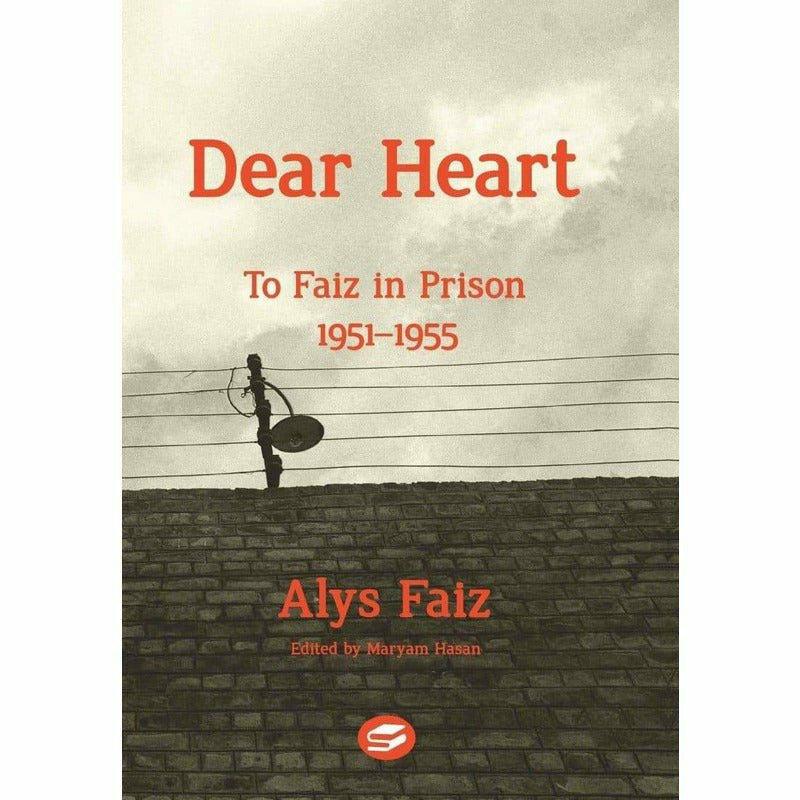
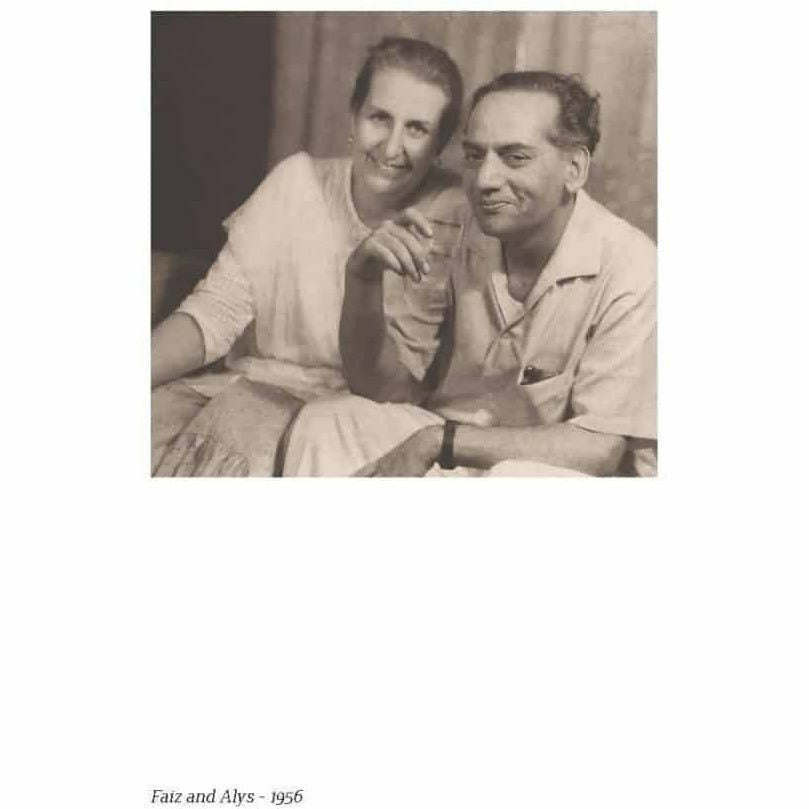
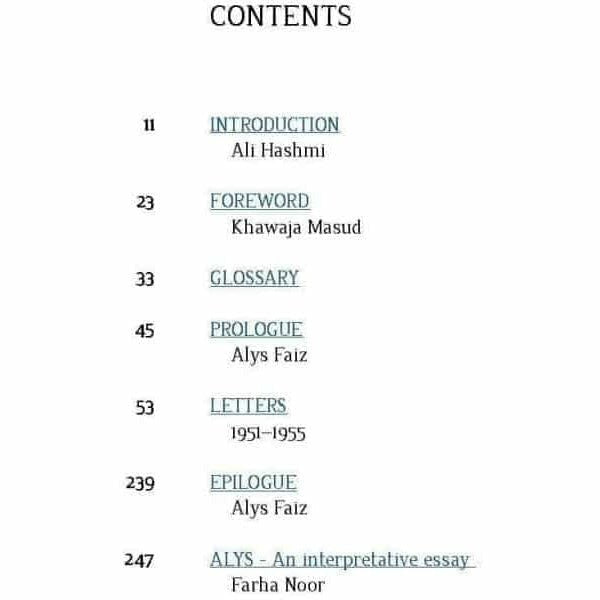
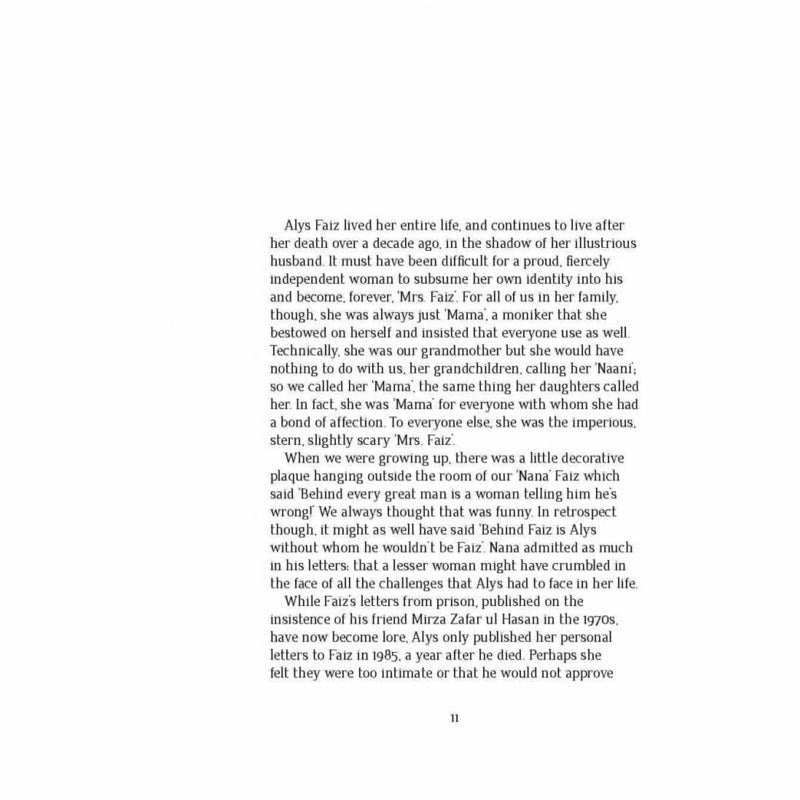
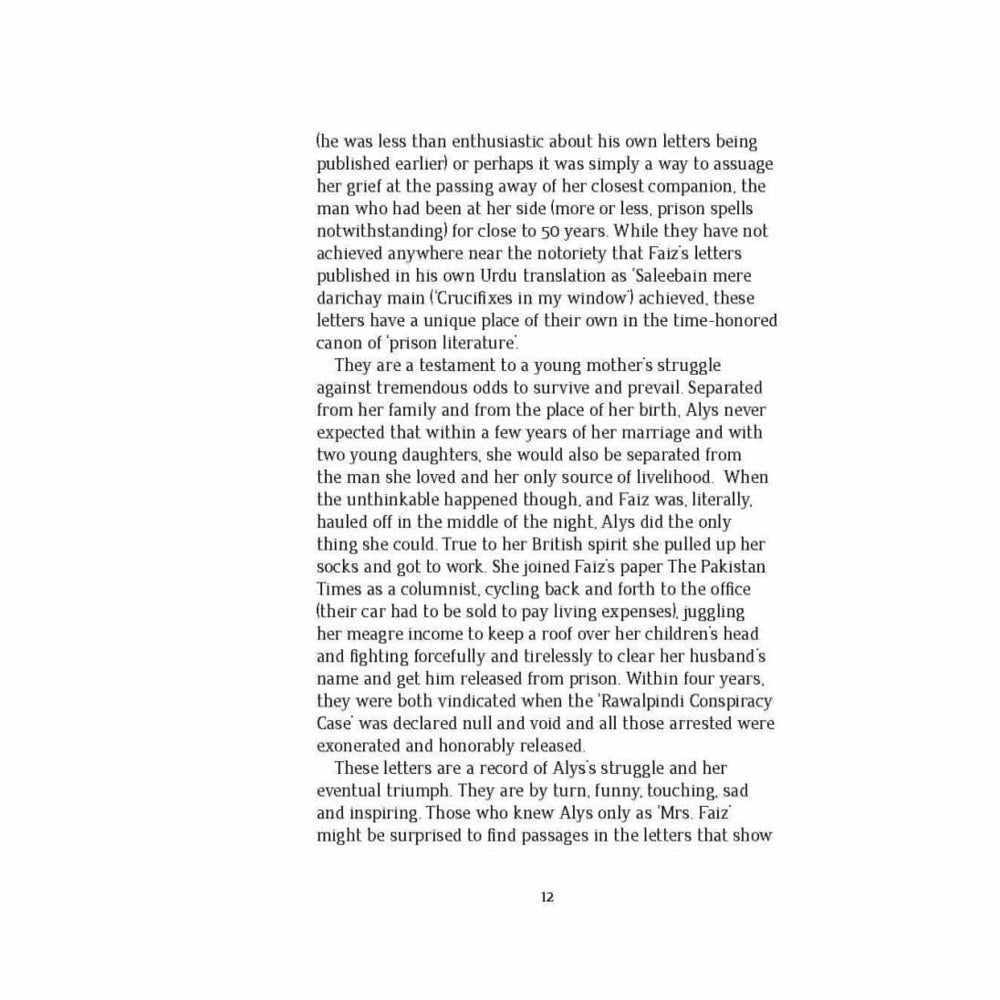
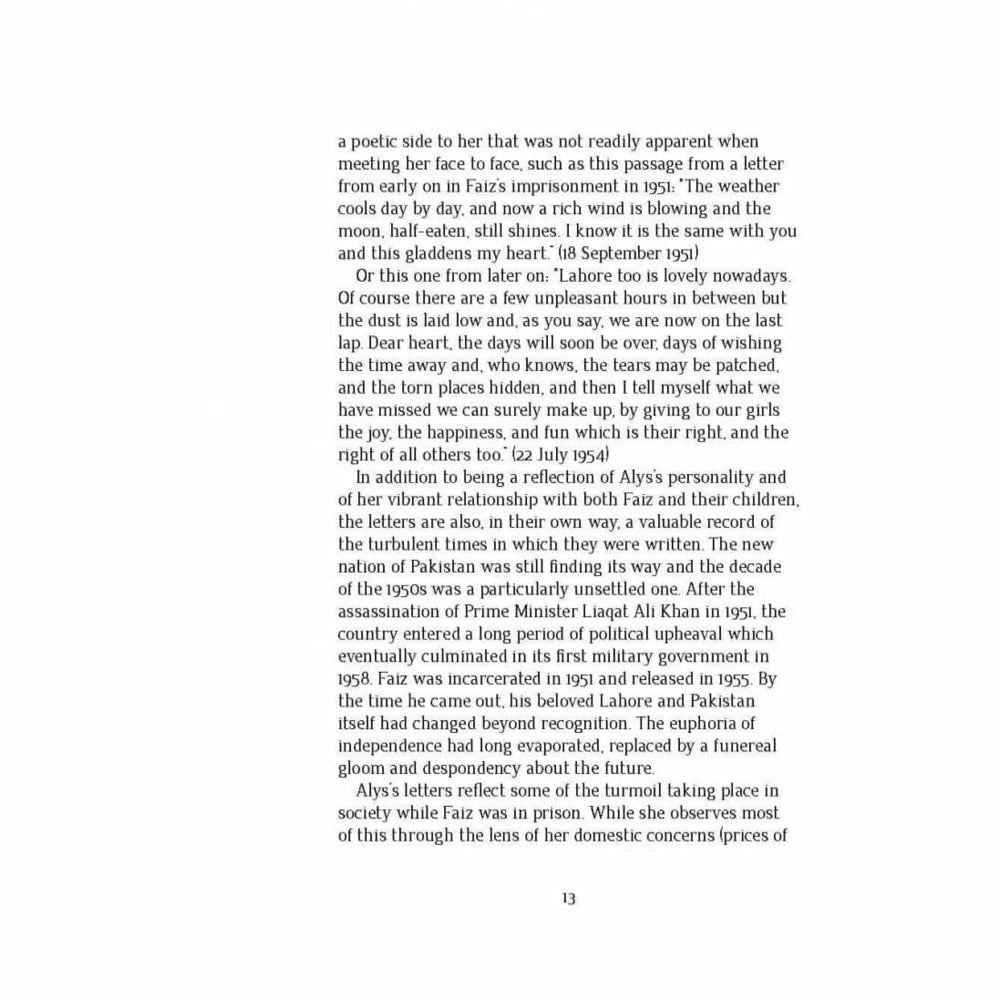
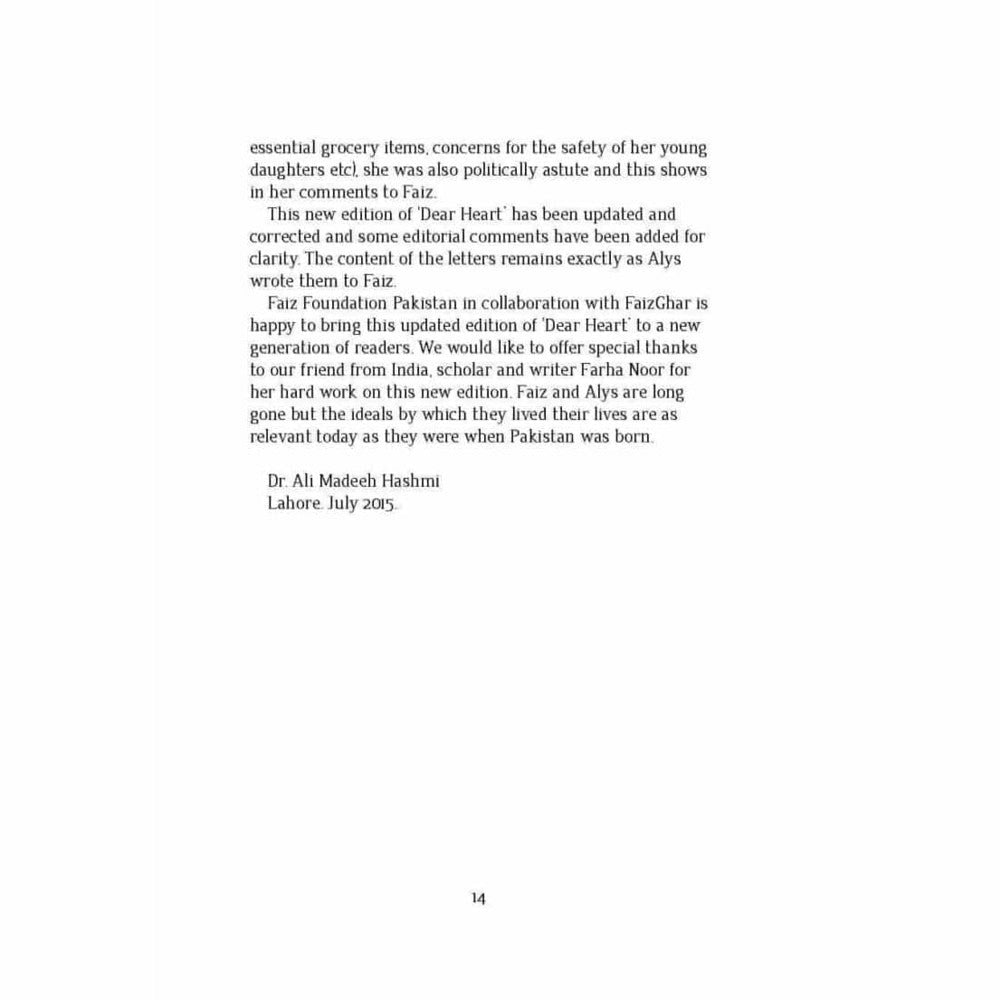
An epistolary collection. The book quality is great, worth the purchase
Waited for two weeks and even contacted on Instagram and on website but got no reply did not receive the parcel i had to go to two different stores to buy it myself
Great book, the binding was good, the quality of the page, and pictures etc. Loved it.

